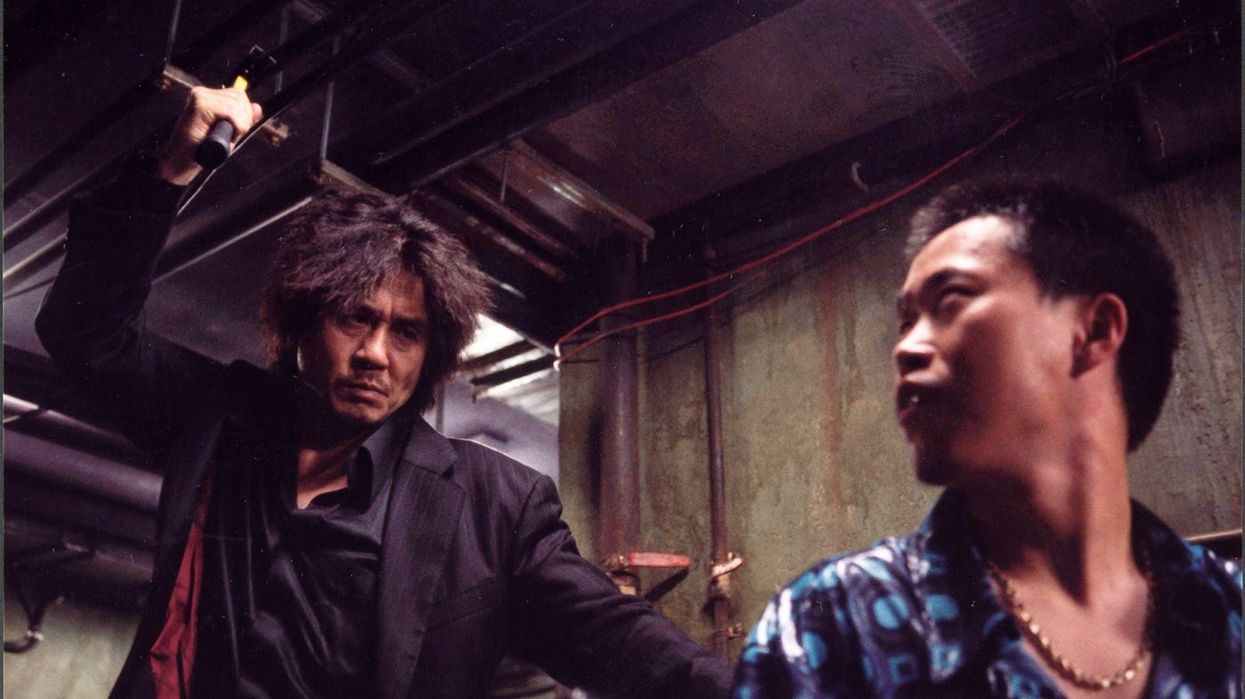'Oldboy', the Greek Tragedy: Adaptation & the Tragic Form
Released in 2003, the South Korean film Oldboy created a sensation with its over-the-top violence and themes of revenge.

In this video essay, Lewis Criswell shows that one of the reasons Oldboy is so effective is that it an adaptation of the Ancient Greek tragic form, specifically that of Oedipus Rex.
Adaptation is never easy, whether what's being adapted is a short story, novel, or any other piece. Film, as a primarily visual form of storytelling, has its own unique requirements. When adapting from a theatrical form, and specifically one as specific and foreign to modern sensibilities as the theatrical spectacle of Greek tragedy, the adaptation can't rely on mimicry; rather, it has to find elements that translate to film and make them work. In Oedipus Rex, a king learns that a plague in his city has been caused by him through actions in the distant past, which unwittingly led him to fulfill a prophecy of murdering his father and sleeping with his mother.
Oldboy is an example of both adapting existing material and also fitting the story into an existing form of storytelling. For Aristotle, author of the Poetics, a tragedy had to have specific elements. Chief among these was drama as a driving force, rather than narrative. In other words, "Show, don't Tell."
In a tragedy, the plot should focus on cause and effect, that is, one event causes the next, and so on. This is called a unity of action. This is opposed to the episodic plot, where one thing happens after the other, after the other, and so on. To the Ancient Greeks, a person was incapable of escaping their fate, which had been given to them by the gods. This meant there was no such thing as a coincidence. In Old Boy, by cutting back and forth in time, we gradually learn why Oh Dae-su was kidnapped in the first place, and director Chan-wook Park uses the uniqueness of cinematic editing to accomplish what could not happen on a stage.
When Oh Dae-su realizes why he has been imprisoned, he comes to an understanding of his own part in the chain of events which led to his imprisonment (SPOILER ALERT), his witnessing of Woo-Jin's act of incest with his sister; Oh Dae-su's actions lead to the suicide of Woo-Jin's sister, and set off Woo-Jin's desire for revenge. But then, Oh Dae-su realizes that Woo-Jin's revenge is more than his plan for a 15 year imprisonment; he has manipulated reality, in a way, and arranged it so Oh Dae-su has fallen in love and slept with a woman he did not know was his own daughter. But for Criswell, even though, at the end, the chain of events has been broken, nothing has been resolved.
"Nothing has been resolved."
Even though Oh Dae-su attempts to use hypnosis to clear his mind, and takes drastic actions to keep Mi-do, his daughter, from discovering the truth about their relationship, the film's end is ambiguous as to the effectiveness of Oh Dae-su's effort to forget. This is in keeping with the Greek tragedian theme of the inability to escape one's fate. Oh Dae-su cannot be relieved of the debt of causality. As Oedipus blinded himself, so does Oh Dae-su cut out his own tongue. And by using the forms of the ancient medium, Chan-Wook Park has managed to give the audience a story that stays with them far beyond the experience of the film, just as the effects of the film's causes will continue to resonate beyond the filmic universe in which they take place, affecting the characters forever.
Through careful adaptation of an ancient form to a modern medium, he accomplishes a feat that adds considerable drama to his film, and is an object lesson in how a filmmaker can adapt forms in order to make them uniquely cinematic.
Source: Oldboy - Resurrecting the Greek Tragedy











